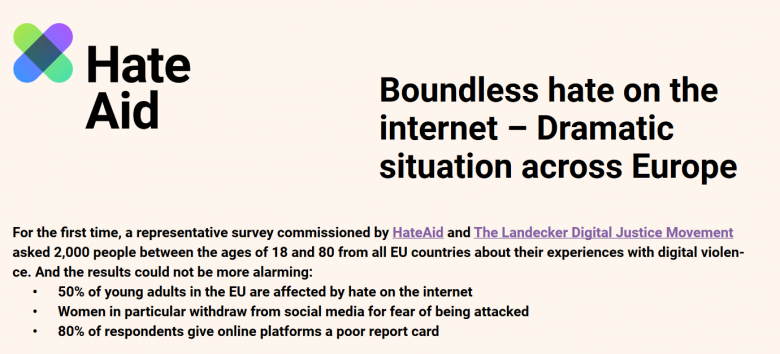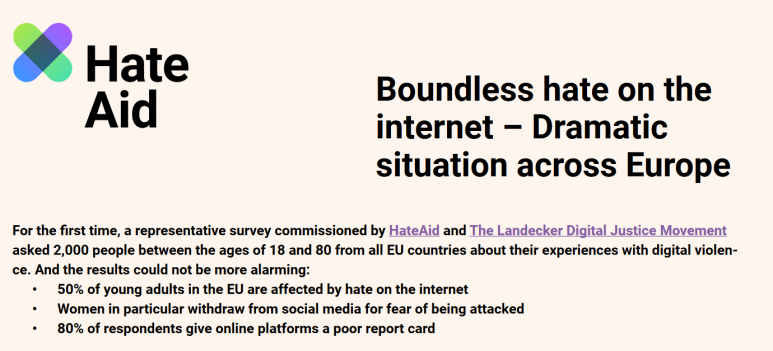A new representative survey commissioned by HateAid within the Landecker Digital Justice
Movement shows: Digital violence has reached massive proportions across Europe. One in three
Europeans has already been personally affected by hate on the internet – among young adults even
every second person. Together with a broad civil society alliance, HateAid is now calling on the EU
to intervene with the Digital Services Act (DSA).
Media Diversity Institute has joined this campaign.
The latest survey by HateAid has found that online hate is not an isolated incident.

“Digital violence can affect anyone. But the results show a particularly dramatic situation for young adults in the EU. 92 percent of men and 90 percent of women in the 18 to 35 age group have already witnessed digital violence on several occasions. Across all age groups, more than two-thirds of all respondents have been confronted with hate and incitement on the internet in their lifetime.”
Women in particular are withdrawing from the Internet
“For fear of hate, 52 percent of women express their opinions on the Internet less often. Among the male respondents, around 43 percent said they express their opinions less.Hate on the net leaves its mark. In view of the increasing brutalization on the Internet, many people are afraid to take a stand. 43 percent of women and 35 percent of men are generally more cautious and anonymous in social media because of possible attacks.”
Over 80% of Europeans demand more protection
“Europeans want to hold Facebook, Twitter and others accountable: 80% said that these online platforms are not doing enough to protect people from digital violence. Almost 80% of all respondents would therefore like to be able to better control the platforms‘ algorithm so that they can decide which system is used to show posts. 92% argue in full or in part that illegal content should be removed from the platforms. 84% of men and 92% of women even think that laws are essential or at least desirable to control online platforms.”

